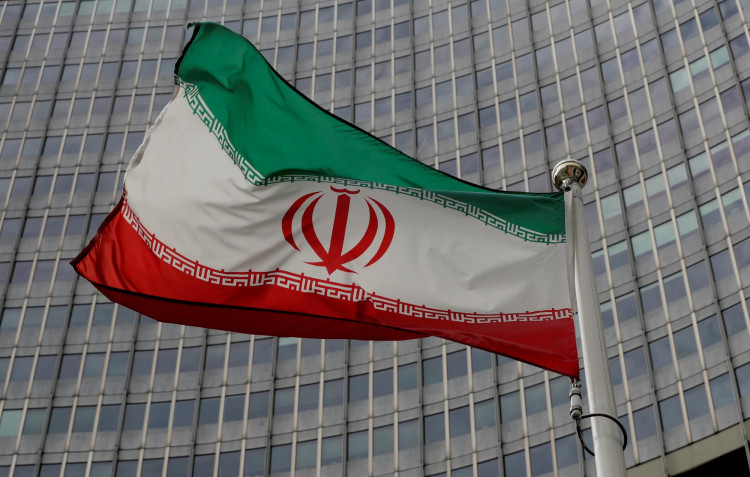Iran's Supreme Leader Ayatollah Ali Khamenei and his top advisors have issued escalating statements on Iran's nuclear doctrine, suggesting the country may alter its nuclear stance if it perceives an "existential threat." Kamal Kharrazi, a senior advisor to Khamenei, announced Friday that Iran possesses the capacity to build nuclear weapons, though it currently refrains due to a fatwa against nuclear arms issued by Khamenei in 2003. Kharrazi's remarks highlight Iran's readiness to review its nuclear doctrine if necessary.
"If an existential threat arises, Iran will modify its nuclear doctrine," Kharrazi said in an interview with Lebanese broadcaster Al Mayadeen. "We have the capability to build weapons and have no issue in this regard," he added, stating that "the only thing currently prohibiting this is the leader's fatwa."
The statement marks a shift from Iran's historical stance, which has long maintained that it is not pursuing nuclear weapons. While the U.S. and allied intelligence agencies have continued to monitor Iran's activities, Kharrazi's comments have heightened international concerns over Tehran's nuclear intentions. According to Kharrazi, Iran has adhered to the fatwa issued by Khamenei nearly two decades ago, which prohibited the development and use of nuclear weapons. However, he implied that the doctrine could be re-evaluated under circumstances where Iran's survival is at stake.
General Mohammad Naeini, a spokesperson for Iran's Revolutionary Guard, reinforced Kharrazi's statements on Saturday, adding that "a decisive and strong response will be given to the enemy's new aggression. The response will be beyond the enemy's comprehension, strategic, and powerful." Naeini warned that any hostile act would be met with a "crushing response in return." His remarks were interpreted as a warning to Israel, following Israel's recent strikes on Iranian military facilities.
The recent rhetoric represents a noticeable escalation in Iran's stance, coming amid heightened tensions with Israel. On October 26, Israel launched strikes on Iranian military targets, reportedly causing substantial damage. Israeli Prime Minister Benjamin Netanyahu has also signaled that Israel remains ready to prevent Iran from developing nuclear weapons, stating, "We can reach any place in Iran as necessary," and that Israel's goal is to "prevent Iran from achieving a nuclear weapon."
Since the U.S. withdrawal from the 2015 Joint Comprehensive Plan of Action (JCPOA), a nuclear deal intended to restrict Iran's nuclear activities, Tehran has stepped up its nuclear enrichment activities, drawing warnings from the international community. Although CIA Director William Burns noted last month that there is no evidence Iran has made a decision to restart its nuclear weapons program, he acknowledged that Iran could accumulate enough fissile material in as little as a week if it chose to.
In response to the rising threats, the Pentagon announced additional deployments to the Middle East, including B-52 bombers, fighter jets, and Navy destroyers to support allies and deter any regional escalations. U.S. State Department officials reiterated Friday that the United States remains resolute in its stance, with a spokesperson saying, "The President has made clear: We are committed to never letting Iran obtain a nuclear weapon-and we are prepared to use all elements of national power to ensure that outcome."
Kharrazi's comments also underscore Iran's shifting view on missile range restrictions, a concession that Tehran had historically respected out of sensitivity to European concerns. But according to Kharrazi, "there is no reason for us to consider their concerns" if European nations disregard Iran's own territorial security. "There is a possibility that the range of Iran's missiles may increase," he said, signaling that Iran may expand its missile capabilities if it feels European allies are not considering Iran's security needs.
Iran's recent statements underscore the precarious nature of its nuclear program, which has oscillated between restraint and defiance since Khamenei's initial fatwa. Since the fatwa was issued, Iranian officials have cited it as a testament to their peaceful nuclear intentions, though they have now hinted at potential doctrinal shifts under extreme pressure. Hossein Salami, commander of the IRGC, said earlier this week that there would be "an unimaginable response" to further Israeli attacks.
Meanwhile, the timing of these statements comes as Iran commemorates the anniversary of the 1979 storming of the American embassy in Tehran, an event that cemented decades-long animosity between the U.S. and Iran. The possibility that Tehran could reevaluate its nuclear doctrine adds a new dimension to the ongoing tensions in the Middle East, as both the U.S. and Israel weigh responses to potential nuclear escalations by Iran.




